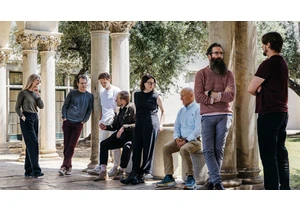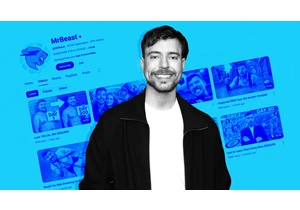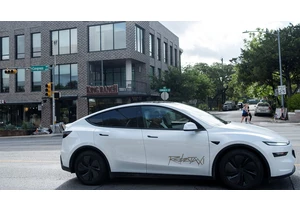On November 30, 1988, members of the Boston Computer Society filled that city’s Symphony Hall to capacity. They were there to see Steve Jobs demo the NeXT cube, the remarkable computer from the startup he’d founded after being ousted from Apple three years earlier. I was lucky enough to be in Jobs’s audience—and even my 34-year-old recollections of the evening are electrifying.
Charles Mann was also in the house that night. He was recording Jobs’s show for distribution as part of the Powersharing Series, an audio-cassette series of presentations made at the BCS, other user group meetings, and Boston’s Computer Museum by tech-industry notables. After putting the project aside for decades, Mann returned to it in recent years: Working with tech historian Tom Frikker, he digitized 134 of his recordings and began selling them on a $60 USB drive. It’s a priceless record of what was going on in computing between 1982 and 1991.
In 2020, I wrote about Jobs’s demo and Mann’s recordings, and shared the NeXT audio in its entirety along with other Powersharing excerpts. What I didn’t know at the time: Mann didn’t just save his master tapes. He also preserved a trove of documents relating to the undertaking, including the releases that speakers signed granting permission to use their presentations.

The auction will go online this Friday at 11 a.m. EDT and close on August 18. Mann’s archive is so bountiful that only a chunk of it is included. Another batch will go up for bid later.

Even in the 1980s, Jobs’s obsessive perfectionism was the stuff of legend.
His goal with getting the recordings into schools and libraries, he says, is “not to generate income from it, but just to make sure that they’re there. I’ve long since given up on recovering funds from [the recordings], unless this auction unexpectedly strikes fire. But you know, that would be ironic, because I had never thought about that.”
Signed by Steve Jobs
Just as Jobs’s NeXT presentation may be the single most significant Powersharing recording, his contract, which he signed on February 16, 1989 at NeXT, is the flagship of the upcoming auction. He didn’t like doling out autographs, which he claimed to see as a form of credit-hogging. That makes any surviving Jobs signature a sought-after rarity, and RR Auction has developed something of a specialty in them.

Even in the 1980s, Jobs’s obsessive perfectionism was the stuff of legend. So Mann found it especially meaningful that the Apple cofounder gave his blessing to the Powersharing Series audio-only version of his NeXT presentation. “My happiest moment was getting a letter back from somebody in his office saying, ‘we thought the tape was very good and here’s Steve’s release,'” he says. (That letter is included with the release in RR’s auction.)

Melden Sie sich an, um einen Kommentar hinzuzufügen
Andere Beiträge in dieser Gruppe

A team of prominent AI researchers, led by Databricks and Perplexity cofounder Andy Konwinski, has launched Laude Institute, a new nonprofit that helps univers

YouTube star Jimmy Donaldson—aka MrBeast—is the face of the online video-sharing platform. He tops the platform’s most-subscribed list, with more than 400 million people following his exploits. On

Tesla deployed a small group of

Imagine you owned a bookstore. Most of your revenue depends on customers coming in and buying books, so you set up dif

For 13 years, Subway Surfers’ download rate has been consistent: about one million new installs every single day.
Half of those downloads come from users upgrading to new

Misbehavior on digital platforms can be tricky to manage. Issue warnings, and you risk not deterring bad behavior. Block too readily, and you might drive away your user base and open yourself to a

You’d be forgiven for forgetting that there was a time when Microsoft Edge was basically the web browser that opened when you accidentally clicked a link that didn’t default to opening in Chrome o
